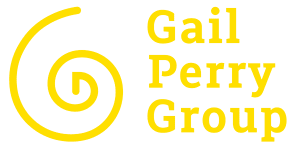
We all know that major gift fundraising comes down to the moment of truth – when you actually talk with a donor about a gift.
So how can you make asking much easier and more successful?
Often, it can be an exciting, scary moment. But an asking conversation does not have to be always nerve wracking.
Remember these insights and you’ll be far more calm and successful when you are discussing a gift with a donor.
We’ll be teaching these approaches to successful major gift asks in our Major Gifts Intensive, which starts next week. Find out more and join us here.
1. Asking is a process, not a one-time transaction.
You’ve got to remember that this is NOT a “make or break” moment.
Asking is not a single point in time. Instead, it’s a process that happens over several conversations. That’s why we call it an Asking Conversation.
At Gail Perry Group, we teach a donor-centered approach to asking that is completely permission-based. Following this approach, you would simply ask your donor:
- If they’d like to learn more?
- What about your work most interests them?
- Would they like to know how they could help?
And ultimately:
- Would they be interested in discussing a possible gift?
When you take your time, these preliminary conversations help you develop a trusting relationship with your donor. And it builds up to a generous gift.
2. Giving is an emotional act by the donor.
Don’t forget: The act of making a gift is an emotional act.
When a donor gives, they are often feeling warm and fuzzy about the difference they can make.
It’s an emotional energy. And it connects them deeply to some memory, belief, or deep commitment – one of their closely-held personal values.
In all our planning, analyzing and scripting, we forget that our donor is a living, breathing human with needs, desires, interests and passionately held beliefs.
While we are focusing on dollars that will help us toward a goal, your donor is focusing on what’s going on in their heart – how do they “feel” about your cause. How do they “feel” about the difference they might be able to make?
We miss the mark when we focus too much on the logic and the numbers. (You do need the numbers to provide credibility but don’t lead with them.)
3. It’s not about money.
Yes, fundraising is about much, much more than money.
If you think what you are asking for is “money,” then you won’t be very successful.
If you think it’s all about money, then you won’t be connecting with the higher, altruistic purpose that lives in your donor’s heart.
You’ll instead be engaging in a sales transaction, and one at a much, much smaller level.
One of my great fundraising mottos is:
“Fundraising is not about money, it’s about changing the world.”
If you focus your conversation and your energy about what’s at stake, and how this gift could make such a huge difference, then you’ll be able to raise mega gifts.
4. It’s not about you.
Many people are self conscious and focusing on themselves when they are chatting with a donor about a gift. Maybe it’s nervousness or awkwardness, but they are self-focused rather than donor-focused.
BUT it’s really all about the donor. You should be thinking of him or her all the time, not about yourself.
You need to take your cues from the donor, and not be thinking about what you will say or do next.
We fundraisers have learned (the hard way sometimes) that the only way to be a successful solicitor is to let the donor lead the way.
Your donor is not particularly interested in what’s going on with you. What they are interested in is how they can help.
5. People give to an exciting opportunity with the HIGHEST impact.
When you are preparing for an ask, you must always, always remember that people want to give to a project with high impact and exciting potential.
Too many fundraisers focus on money. Or they will focus on the project. We recommend that you focus on IMPACT.
So when you are presenting your “Big Idea” for your donor, you’ll need to talk in the largest possible terms.
Here are a few examples to keep in mind:
- For a kids’ soccer team: “Help these young people develop skills and experience of teamwork in sports to help them prepare for life.”
- For a literacy program: “Help people gain self-respect, tools for better employment and become productive citizens. And you are also helping an entire family get on their feet.”
- For an independent school: “Help young people get the best possible education so they will be prepared for life – they are our future.”
- For a health clinic: “Our health infrastructure is a basic foundation for economic development in our community.”
And on and on. You can take any project and blow it up to its highest potential.
Bottom Line: These ideas about asking will help you be calmer, more confident and much more successful.
Our Major Gifts Intensive is starting next week with orientation. We’ve got such a terrific group of smart organizations who are joining us to launch or expand a major gift initiative. We have spaces for two more organizations if you want to join at the last minute! Email anne@gailperry.com if you are interested.
